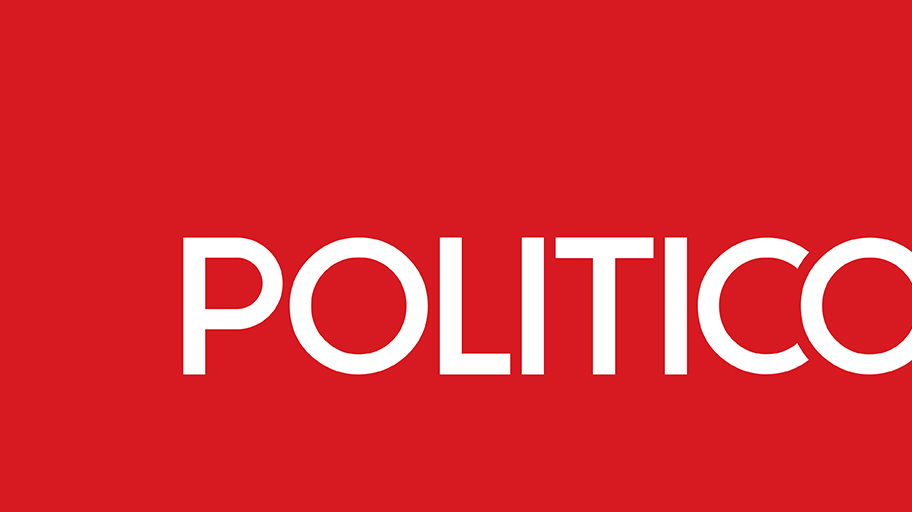With help from Daniel Payne
Programming note: We’ll be off this Monday for Presidents Day but will be back in your inboxes on Tuesday.
RFK JR. TAKES OVER HHS — Robert F. Kennedy Jr. was sworn in to lead the Department of Health and Human Services on Thursday, and his plans for the agency could make Elon Musk’s budget-cutting spree look small in comparison, POLITICO’s Chelsea Cirruzzo, Daniel Payne and Adam Cancryn report.
The new HHS secretary, who won Senate confirmation Thursday, promises to take the nation’s health agencies in a radical new direction.
“We will make sure our tax dollars support healthy foods. We will scrutinize the chemical additives in our food supply. We will remove the financial conflicts of interest in our agencies,” he told the Senate Finance Committee during his confirmation hearings. “We will create an honest, unbiased, science-driven HHS, accountable to the president, to Congress and to the American people.”
In a 52-48 vote, only former Republican leader Mitch McConnell of Kentucky broke from the party line, joining Democrats in opposing Kennedy — who has a long history of criticizing the safety of scientifically proven vaccines.
Kennedy has big plans to target the health care industry and food manufacturers — representing a shift for Republicans who once largely aligned with the sectors. Focusing on attacking chronic disease by regulating food additives and chemicals in the environment will likely be at the top of his agenda, according to two people familiar with his internal discussions, who were granted anonymity to speak freely.
Asked in a Fox News interview Thursday night about rumors that 50 percent of HHS employees would be fired, Kennedy said he “would be surprised if there were 50 percent cuts.” He said most lower-level HHS employees are “good American patriots and hardworking people,” and he’s more interested in firing people who “have made really bad decisions,” such as on nutrition guidelines.
“I’m not going to let the food industry and the pharmaceutical industry run health policy anymore,” Kennedy added. “We’re going to turn health policy over to people who are actually concerned with public health.”
It’s not clear how quickly Kennedy might move to put his stamp on the administration’s health agenda, but he laid out an aggressive plan even before Trump named him to lead HHS, including vowing an overhaul of HHS’ Food and Drug Administration, calling it “corrupt.”
Even so: Kennedy’s lack of managerial experience and unfamiliarity with the intricacies of HHS’ various programs could limit his reach. A former senior Trump HHS official, granted anonymity to speak freely, told POLITICO that Kennedy’s influence would come down to his circle.
“Personnel is policy. That’s incredibly true of the Trump administration,” the official said. Kennedy, the person said, will need to rely on people with institutional knowledge to make the changes he wants to make — within the applicable constructs to avoid judicial challenges.
WELCOME TO FRIDAY PULSE, and happy Valentine’s Day! It’s been a busy week in the health policy world — but we’ve finally made it to the long weekend. Send tips, scoops and feedback to [email protected] and [email protected], and follow along @Kelhoops and @ChelseaCirruzzo.
A message from the Coalition for Medicare Choices:
Protect Medicare Advantage: 34 million seniors are counting on it. Over half of America’s seniors choose Medicare Advantage because it provides them better care at lower costs than fee-for-service Medicare. With their coverage and care on the line, seniors are watching closely to see whether policymakers keep the bipartisan promise to protect Medicare Advantage by ensuring this vital part of Medicare is adequately funded. Learn more at https://medicarechoices.org/
FIRST IN PULSE: BROOKS-LaSURE MAKES HER NEXT MOVE — Chiquita Brooks-LaSure, the Centers for Medicare and Medicaid Services administrator during the Biden administration, is joining a progressive think tank as a public policy fellow, your host reports.
In her first interview since she left CMS in January, Brooks-LaSure talked about her new role at The Century Foundation — which created the fellowship for former Biden administration officials to unite and fight the Trump administration’s policy agenda.
Brooks-LaSure, who spent four years leading the agency that oversees health insurance coverage for more than 160 million Americans, also reflected on her time at CMS, talked about what else she wishes she could have accomplished there and shared her biggest concerns about the Trump administration taking over.
Here’s a snippet of our conversation, edited for length and clarity.
What are you proudest of from your time at CMS?
In terms of the policies, I’m really proud of strengthening what I would call the three M’s: Medicare, Medicaid and marketplace coverage, and also that that coverage became more meaningful with really strengthening Medicaid — making sure that we’re holding states accountable to have adequate networks so that people can see their doctors when they have a Medicaid card, really trying to lift the standards for home and community-based services.
What are your concerns with the Trump administration taking over?
The thing that I’m most concerned about is the attitude and desire to shake up the federal workforce. I was a career civil servant, and the civil service’s goal is to try to serve a new incoming administration, and some of these actions to encourage people to leave, it’s destabilizing to the workforce. And the people at CMS in particular operate things that every day Americans depend on. If you lose the expertise of the people who run the systems that pay doctors, that pay hospitals, these are high-stakes mistakes.
I’m very concerned about this perspective on diversity, equity, inclusion, of eliminating and looking critically at so many of these important programs.
What are some things you wish you had done during your time at CMS?
There is still unfinished work of expanding Medicaid in all states. Closing the coverage gap is something that is deeply meaningful to me. Whether it’s states expanding or Congress filling in the gap, I think having a gap for our poorest people in this country, not providing health insurance is — I don’t even know what word to use — but it’s wrong. The poorest among us should absolutely be able to see the doctor.
FIRST IN PULSE: MEDICAID ATTACKS — Democrats and left-leaning health groups are mounting a campaign — including $1 million in ads — against the Republicans discussing cuts to Medicaid, Daniel reports.
The Democratically aligned Protect Our Care is launching a digital ad and billboard campaign Saturday, targeting 10 House Republicans: David Schweikert of Arizona; David Valadao, Young Kim and Ken Calvert of California; Nick LaLota, Andrew Garbarino and Mike Lawler of New York; Ryan Mackenzie and Rob Bresnahan of Pennsylvania; and Dan Newhouse of Washington.
The campaign is part of the group’s $10 million effort to push back on Medicaid cuts.
And lawmakers plan to join in. Democrats on the Hill have increasingly spoken to the public and press about the repercussions of cuts — and don’t plan to stop speaking out anytime soon.
“I happen to know that many of my Republican colleagues are also concerned about this,” Rep. Kim Schrier (D-Wash.) told Pulse. “I am hoping that my Republican colleagues will speak up. I know I will be speaking up to make sure that the public understands — because so much of what sways what happens in Washington D.C., is public outrage.”
A message from the Coalition for Medicare Choices:
TRUMP LAUNCHES MAHA COMMISSION — President Donald Trump signed an executive order Thursday to launch the Make America Healthy Again Commission, which will be chaired by newly confirmed HHS Secretary Robert F. Kennedy Jr., Chelsea and POLITICO’s Ben Leonard report.
The commission is tasked with assessing within 100 days what “is known and what questions remain” about pediatric chronic disease and with releasing a strategy within 180 days to tackle the issue. Its main goals are to offer “transparency and open-source data” and root out “conflicts of interest” in health research, bolster “gold-standard research,” make sure food is “healthy, abundant and affordable” and bolster “treatment options and health coverage flexibility.”
“President Trump understands that America’s healthcare system is largely focused on treating chronic illnesses rather than preventing them, leading to a growing health crisis with serious economic and national security consequences,” the order says.
The order specifically mentions chronic disease in children, including autoimmune disease and asthma, but also obesity and says “over medication” — particularly of drugs for attention-deficit/hyperactivity disorder — is a concern.
It also includes a CDC statistic that 1 in 36 children have been diagnosed with autism. During his confirmation hearings, Kennedy refused to back down from false claims linking vaccines to autism and said he would reverse his view if “shown the data.”
Key context: The order aligns with the Kennedy-backed “Make America Healthy Again” movement and his assertions during his confirmation hearings that the rise in chronic diseases is linked to food additives and chemicals in the environment.
POLITICO’s Alice Miranda Ollstein reports on how a federal judge temporarily blocked enforcement of Trump’s order restricting gender-affirming care for transgender youth.
POLITICO’s Kyle Cheney and Josh Gerstein report that a federal judge has blocked the Trump administration’s blanket freeze on foreign aid funding.
POLITICO’s Joanne Kenen reports on why Republicans might find it difficult to reform Medicaid.
The Wall Street Journal’s Julie Wernau reports on how the few people who appeal health insurance denials usually win.
A message from the Coalition for Medicare Choices:
Medicare Advantage helps seniors prevent and manage chronic disease. Medicare Advantage outperforms fee-for-service Medicare in preventive care and supporting seniors living with chronic disease. Seniors in Medicare Advantage experience fewer readmissions, fewer preventable hospitalizations, lower rates of high-risk medications and better outcomes. Learn more at https://medicarechoices.org/




